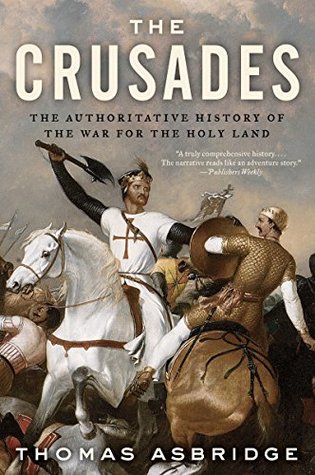More on this book
Community
Kindle Notes & Highlights
Read between
July 20 - September 15, 2024
Many of those who lived in the same early eleventh-century world as Fulk Nerra feared that they were witnessing the last dark and desperate days of humanity. Apocalyptic dread reached its height in the early 1030s, when it was thought the millennial anniversary of Jesus’ death would presage the Last Judgement. One chronicler wrote of this time: ‘Those rules which governed the world were replaced by chaos. They knew then that the [End of Days] had arrived.’ This palpable anxiety alone helps to explain Fulk’s penitent mentality. But as far as the count and his contemporaries were concerned, it
...more
Eleventh-century Europe was not in a state of fully fledged anarchy, but the ravening violence of feud and vendetta was commonplace, and lawlessness endemic. Society was highly localised. Nature’s grip over the West had yet to be loosened, with vast swathes of land still blanketed in forest or left open and uncultivated, and most major road systems dated back to imperial Rome.
Many medieval popes seem earnestly to have believed that they had a wider duty to protect Christendom. They also expected, upon death, to answer to God for the fate of every soul once in their care. By constructing an ideal of Christian holy war–in which acts of sanctified violence would actually help to cleanse a warrior’s soul of sin–the papacy was opening up a new path to salvation for its Latin ‘flock’.
Early in his pontificate, Gregory laid plans for a grand military enterprise that can be regarded as the first real prototype for a crusade. In 1074 he tried to launch a holy war in the eastern Mediterranean in aid of the Greek Orthodox Christians of Byzantium, who were, he claimed, ‘daily being butchered like cattle’ by the Muslims of Asia Minor. Latins fighting in this campaign were promised a ‘heavenly reward’.
It was once popular to suggest that the Islamic world might have swept across all Europe, had not the Muslims been twice thwarted in their attempts to capture Constantinople (in 673 and 718) and then defeated in 732 at Poitiers by Charlemagne’s Frankish grandfather Charles the Hammer. In fact, important as these reversals were, a fundamental and profoundly limiting weakness within Islam had already shown its face: intractable and embittered religious and political division. At their core, these issues related to disputes over the legitimacy of Muhammad’s caliphal successors and the
...more
The area of greatest advance came with regard to the crusade indulgence. Where Urban II’s 1095 formulation had lacked clarity, Quantum praedecessores provided specificity, affirming that the pope would ‘grant remission of and absolution from sins’ to participants, explaining that ‘whosoever devoutly begins and completes so holy a journey or dies on it will obtain absolution from all his sins of which he has made confession with a contrite and humble heart’. Eugenius was not proposing a blanket guarantee of salvation, but he was delivering an assurance that the spiritual benefit of crusading
...more
Today Richard the Lionheart is one of the most widely remembered figures of the Middle Ages, recalled as England’s great warrior-king. But who was Richard? This is a vexed question, because even in his own lifetime he became something of a legend. Richard certainly was aware of the extraordinary power of reputation and actively sought to promote a cult of personality, encouraging comparisons with the great figures of the mythic past such as Roland, scourge of the Iberian Moors, and King Arthur. Richard even set out on crusade with a sword named Excalibur, although admittedly he later sold it
...more


